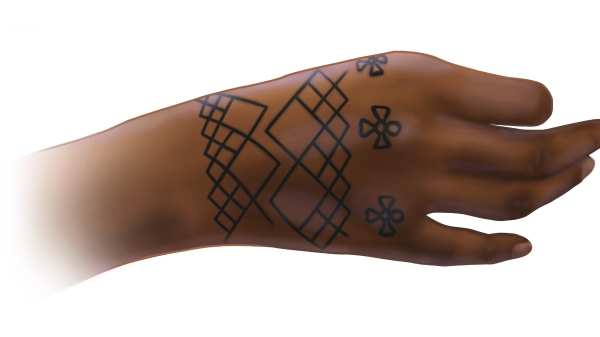Editor’s note: This is part of a series of profiles for spring 2019 commencement.
Sonia Lopez, who graduated with a biological sciences degree from ASU this month, has always been inspired to follow her interest in life on this planet in all its diversity. But she has also been inspired to share that knowledge with others.
Lopez, a first-generation college student, was recruited to TRIO at ASU’s West campus during her freshman orientation. TRIO is a set of federally funded college opportunity programs designed to support first-generation students, low-income students, students with disabilities and veterans.
“TRIO was a second home. I would study and hang out in their office. If I was not in class, research lab or work, you would see me in the TRIO office,” she said.
Not only did Lopez find an amazing organization to be a part of in TRIO, but she also met a wonderful group of people who encouraged her to be more active at ASU. In her time at ASU Lopez was also an active member of the University Hearing Board, the International Food and Culture Club and the Hispanic Honors Society.
Lopez made her mark by helping other first-generation students have a better time at college by giving them the tools they could use to succeed.
“As a first-generation student, I understand how overwhelming university can be and how difficult the sciences are for my peers who share similar backgrounds with me. I hope that by connecting students to research and a great mentor, their experience at ASU is better,” she said.
Lopez shared with ASU Now about her time at ASU, what advice she has for current students and what the future holds for her.
Question: What was your “aha” moment, when you realized you wanted to study the field you majored in?
Answer: I kept switching between majors! My transcript is a record of that.
I knew I wanted to study the sciences, but it took me a while to realize that all along biology was for me, [which I realized] during the end of my sophomore year. I have always had a deep curiosity in learning about life on our planet Earth.
Q: What’s something you learned while at ASU — in the classroom or otherwise — that surprised you or changed your perspective?
A: I took a marine conservation biology course, and it has completely changed the way I see myself as a consumer. Our planet cannot sustain our current rates of consumption.
Plastic in our oceans and landfills provide physical evidence on how much we consume, but that’s just the tip of the iceberg. Climate change is one of the greatest challenges my generation will face.
Q: Why did you choose ASU?
A: I chose ASU because I knew I wanted to get a great education, and [I liked] their commitment to making university attainable to first-generation students.
Q: Which professor taught you the most important lesson while at ASU?
A: Dr. Beth Polidoro and her lab manager, Cassie (Clement), both challenged me to think critically. Sometimes, I had to create tools to help me process several samples instead of doing two at a time.
Q: What’s the best piece of advice you’d give to those still in school?
A: This is the time to explore your interests and build your skills. The education and resources here at ASU are great. You should schedule some time to research what is offered at this university because you’ll discover a project or program you’ll be interested in being involved in.
Q: What was your favorite spot on campus, whether for studying, meeting friends or just thinking about life?
A: Whenever I felt overwhelmed or needed inspiration, I went to the ASU Art Museum. It always put me in a better mood.
Q: What are your plans after graduation?
A: My immediate plans are to get plenty of rest before starting my post-graduate job. My educational journey has not yet ended. I plan to go to graduate school to study environmental science or sustainability.
Q: If someone gave you $40 million to solve one problem on our planet, what would you tackle?
A: I would create an organization that would teach and take elementary and high schoolers to nongovernmental organizations across the world so they can learn about conservation efforts. I think seeing how their actions impact local communities would make them more conscious.
Written by Sun Devil Storyteller Austin Davis, EOSS Marketing
More Science and technology

Student teams create AI tools to help neurodivergent learners
When Stevie Cervantes was a first-year student at Arizona State University, she shied away from using AI.“AI was everywhere and…

ASU researchers shed light on ancient tattoos in the Nile Valley
Long after an archaeological excavation, discoveries can still be made. One such example of this is newly discovered tattoos from…

ASU’s LEAPS lab marks a decade of energy impact
Nathan Johnson doesn't mince words when it comes to Earth's energy requirements.“The world needs every electron it can get to…
